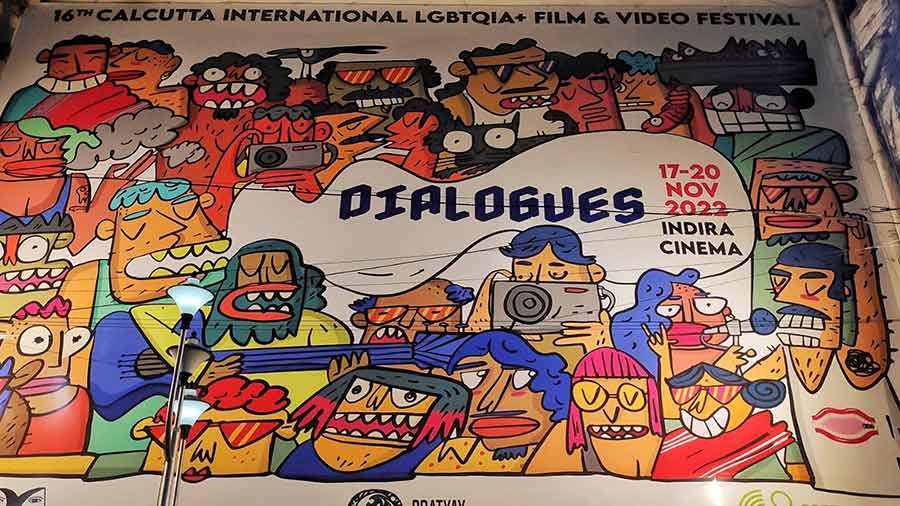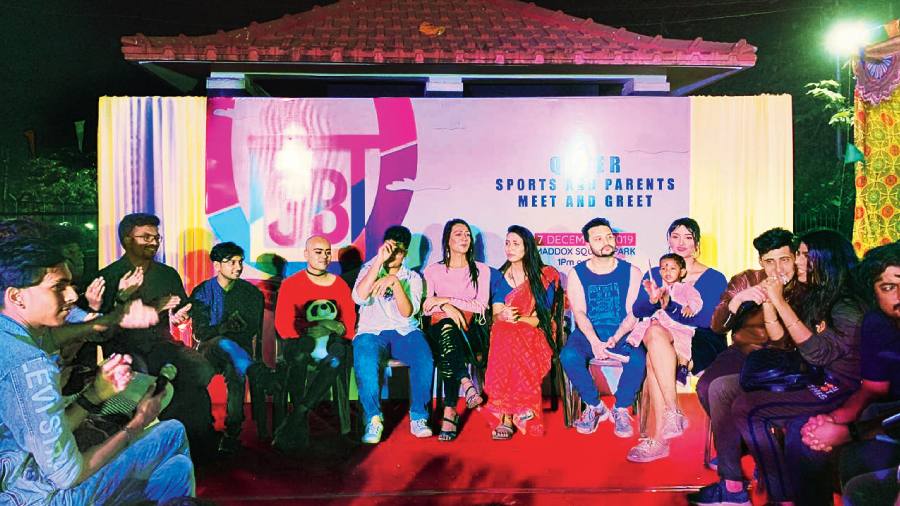Kolkata’s Indira cinema was home to film screenings and discussions during the recently concluded 16th Dialogues: Calcutta International LGBTQIA+ Film and Video Festival 2022, between November 17 and 20.
The festival was organised by Sappho for Equality, Pratyay Gender Trust and Goethe Institut – Max Mueller Bhavan, Kolkata.
Themed on “Death of Dialogue”, around 39 films from 14 countries, including India, Germany, Philippines, United States, Qatar, UK, Iran, Pakistan, Portugal, Georgia, Canada, Lebanon and Denmark were screened. The festival was curated by Mithila Hegde, film-maker and curator; Ramanuj Dutta, film programmer, cinematographer and film-maker; Toby Ashraf, film curator, moderator and film critic; and Maike Mia Hohne, film curator, artistic director, Hamburg Short Film Festival, director, Pink Movies. Along with the screenings, special panel discussions were also organised during the festival.
Talking about the objective and the journey through the decade, Anindya Hajra, founder member, Pratyay Gender Trust and co-organizer, Dialogues, said, “We have definitely grown over the years. The kind of films, filmmakers, and the kind of production houses with whom we are engaging have all grown. We have had India premieres at Dialogues. The whole genre of queer films and filmmaking is something we are engaging with. But I think what we are broadly engaging with is the space of engaging cinema from a trans and queer lens. As a city with a huge cinematic heritage, there was absolutely no conversation around trans queer persons and their representation in the cinematic space. That is where the journey began from the objective of trying to reclaim a space.”
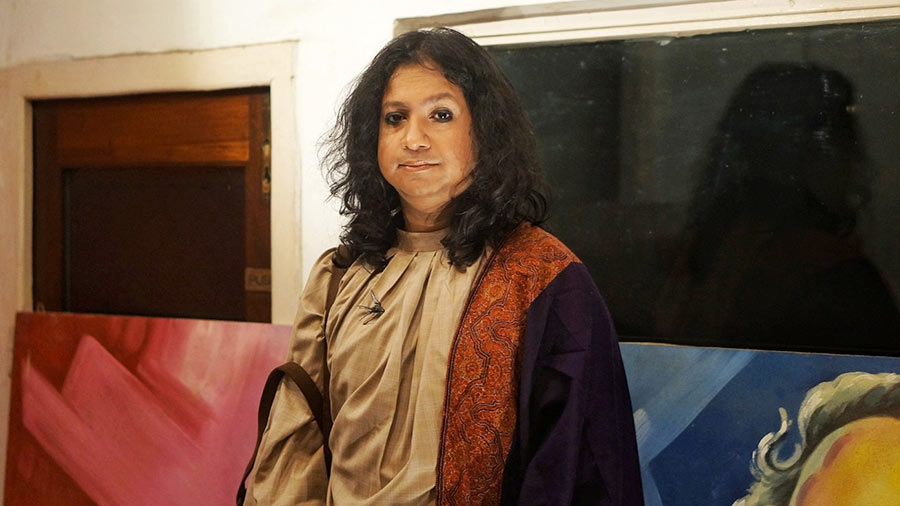
Anindya Hajra at the event
About the festival
Dialogues was first conceptualised in 2007 and thereafter it went on to become India’s oldest non-commercial Queer Film Festival. While Kolkata is home to some of the biggest film festivals, the void surrounding the queer community was visible and hence the inception of Dialogues to start a conversation through films and videos. This year, documentaries, shorts and fictions were screened. Some of the movies include Habitat in Filipino language; Behind the Tin Sheets in Hindi and Happily Ever After in Bangla; How the Room Felt in Georgian and Neubau in Hindi etc.
Pandemic issue
The pandemic has shown the world a face of the community like never before. With growing polarisation, extremism, aggression, masculine chauvinism, it is increasingly becoming difficult to strike a conversation. Does this mean there is death of dialogue? While laws are being made for the community, is it really beneficial or is it suited to the terms of the benefactors? Is there a way to revive this conversation and does performing arts play a role? These and many other questions were answered at Dialogues.
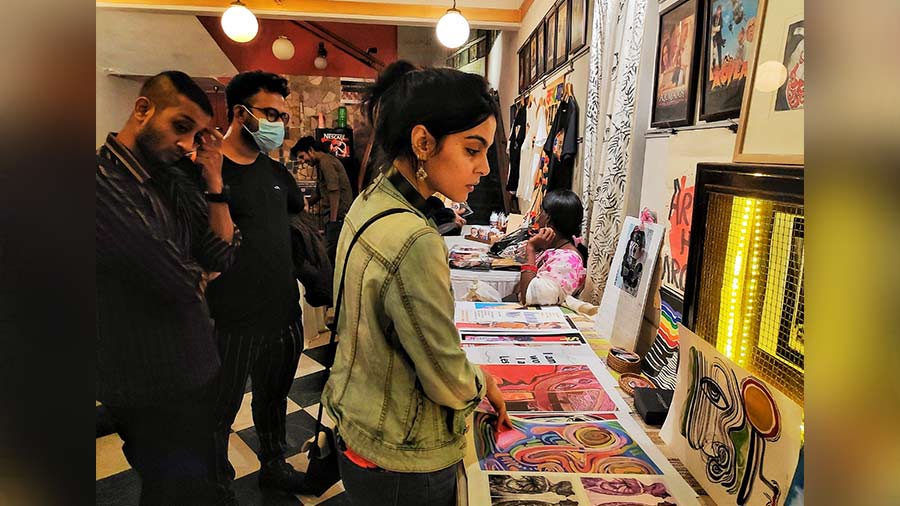
Visitors check out the paintings on display at the event
After watching A Home for My Heart, Anindya Sundar Mirza, a student of St. Xavier’s College, said, “It was a very realistic depiction of a person’s transitional phase. Family dynamics, relationships, the struggles a person goes through was portrayed very well. I really liked it. The dialogues could have been better, but since it’s a documentary, it’s realistic and nice.’’
Panels and more
The festival’s concluding panel discussion was spearheaded by Sanjoy Nag who was in conversation with film-makers Sankhajit Biswas who directed A Home for My Heart and Debolina Majumdar who directed Beyond the Blues along with the movie cast. Both movies, produced in Bengali were Indian entries. They were screened on November 20, after which a discussion took place with the director and the cast. While Beyond the Blues is a movie about breaking binaries and finding a life in one’s chosen path; A Home for my Heart traces the journey of Sudeb Suvana who undergoes the gender affirmative surgery and faces the social and physical challenges associated with it.
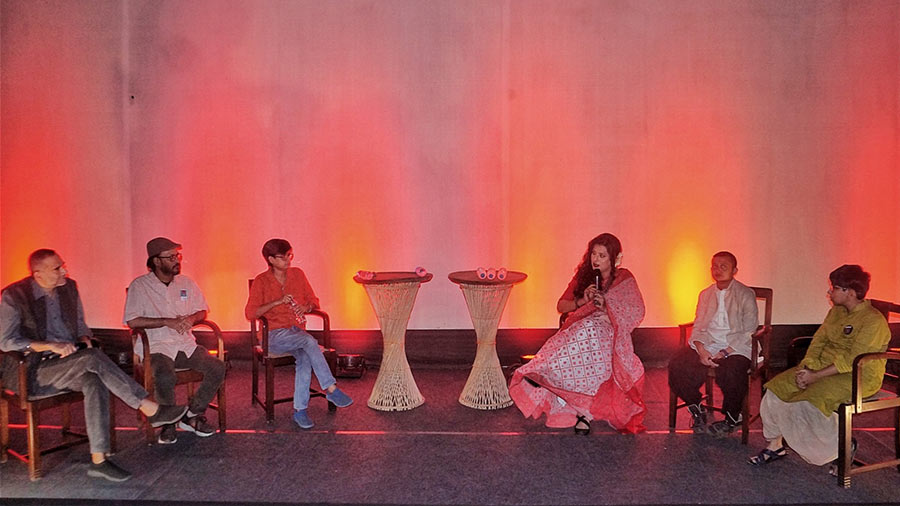
Left to Right: Sanjoy Nag, Sankhajit Biswas, Debolina Majumdar, Sudeb Suvana, Neel, Shamlu in conversation at the event
Saheli Basak, entrepreneur, who visited the festival said, “I saw Beyond the Blues and I feel that the stereotypical concept people have about transgenders and LGBT, needs to be cleared. This is what we understand from the protagonist’s life story. It’s not what the society usually perceives. Only the person who travels through this path understands how it feels. I loved the movie and a lot of concepts were cleared through it.’’
